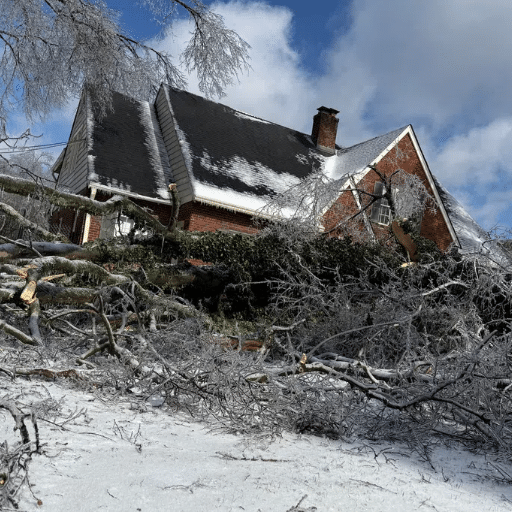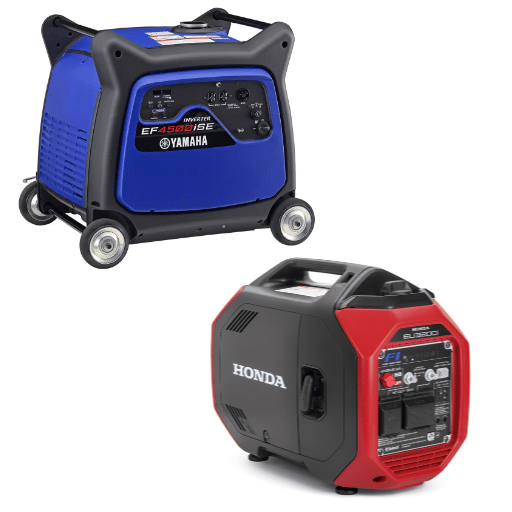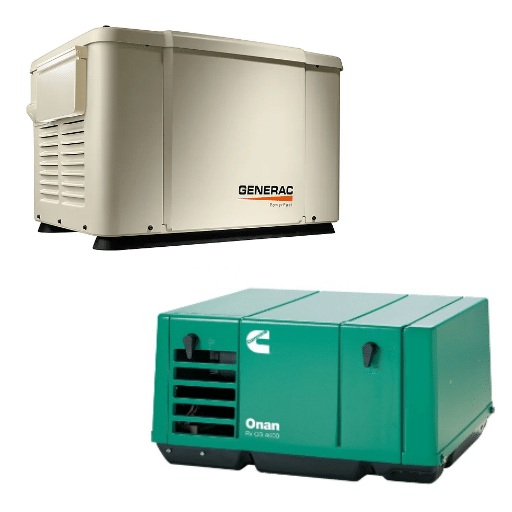Customers depend on electricity for various purposes, from simply lighting rooms to more complex activities like running their businesses from the hotel rooms. This is the reason why most hotels and facilities that are customer-centric ventures have, in recent times, even built standby generators that can be employed in the event of a blackout. This article also expresses the significant roles played by power generators when it comes to hotels by pointing out these roles, some of the advantages they bring, an overview of the critical elements, and finally, insights on how to select the most optimal suited system which can provide the resources and tools to operate the hotel effortlessly. In whichever aspect of hospitality – be it boutique countryside inns or bustling city service establishments, recognizing the importance of swiftly deployed emergency lighting may mark the difference in hosting the best ever customer. Let’s continue to discuss this very important topic for the industry professionals who manage hotels or hotel projects.
Understanding Generators for Hotels
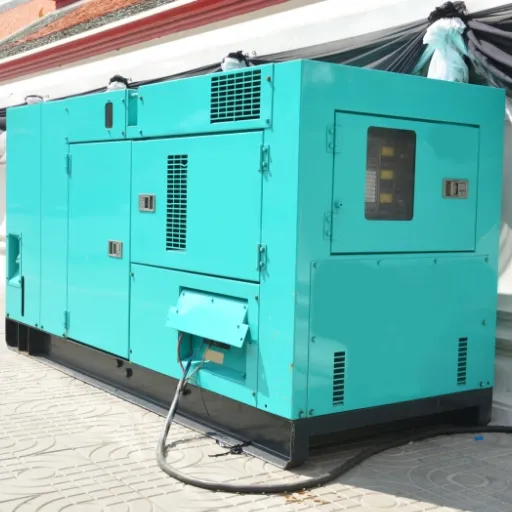
Hotels use generators as emergency power sources to ensure that the operation of crucial areas and amenities is not interfered with in the event of a power failure. In the hotel industry, emergency power is necessary for various systems to run efficiently, including the lighting system, elevators, air conditioning, refrigerators, and telecommunications. Besides, guest satisfaction is a priority in the hotel industry; therefore, uninterrupted power supply is crucial in managing day-to-day activities and preventing undesirable incidents. A crucial requirement for these applications in the hotel industry is that the power supply must be reliable and the system should remain uninterrupted. Possession of an In-house generator, especially during extended outages, helps reduce the expenditures the hotel would have otherwise incurred to compensate such guests and regain the confidence of dissatisfied guests, which ultimately benefits the property. For this reason, it is crucial that such an installation is made in any facility that has many backup supplies, as there are chances of having uncertain emergencies.
What is a Generator?
An alternator is a machine that transforms mechanical energy into electrical energy. It covers power needs when the power goes out or when the cable is not connected to a reliable source of electricity: Modern portable generators are used with internal combustion engines, especially diesel, petrol, and Natural gas electric generators. The mechanical components of an internal combustion engine turn an alternator, which makes an alternating current, which in turn powers devices and machinery. The use of power generators is categorized based on their capacity, starting from domestic use manufactured sets to giant engineering plants and specially equipped facilities like schools, hospitals, and hotels, for which manufacturers design new uses of power equipments or mechanisms. The use of electrical power is there for a backup in case there is a power cut or blackout; the house’s lighting power cut is categorized as an emergency power backup. The most advanced versions of the power-generating devices are equipped with soundproof cases or silencers for quiet operation, since most of the existing generators are noisy types, and this is why people prefer buying other brands: their ability to possess such advanced cycles.
Importance of Backup Generators in the Hospitality Industry
Power sources, such as backup generators, are crucial for continuing operations in the hospitality industry that support a seamless customer experience, especially during energy crises. Of importance to such establishments as hotels, lodges, and eating places is electricity as fuel for lighting, heating, ventilation, and air conditioning (HVAC), cooking appliances, and even point-of-sale machines. An interruption in the delivery of these services can be crippling, both financially and in terms of goodwill, unless reliable power sources are available for the duration of the breakdown.
Furthermore, it is seen in instances when natural calamities occur that emergency energy, even from diesel generators, is provided in order for hospitality establishments to serve as safe havens for the affected communities. The evolution of the current technology in the development of generators has also made power restoration come in faster than before, and this, in turn, has minimized the losses and helped in the generation of friendly energy, which is regenerative. By investing in strong capacity and backup, hospitality sector businesses can remain operational even in hostile environments, ensuring customer satisfaction and operational efficiency.
Types of Generators for Hotels
| Type of Generator | Power Source | Key Features | Ideal For | Cost Efficiency |
|---|---|---|---|---|
| Diesel Generators | Diesel Fuel | Long lifespan, high reliability | Large hotels, sustained use | Moderate initial, low running |
| Natural Gas Generators | Natural Gas | Eco-friendly, low emissions | Urban areas, steady supply | Higher initial, consistent cost |
| Propane Generators | Propane Gas | Clean burning, longer storage life | Remote locations, emergencies | Moderate overall expenses |
| Solar Generators | Solar Energy | Renewable energy, silent operation | Eco-conscious hotels | High initial, low operating |
| Dual-Fuel Generators | Gasoline/Diesel | Flexible fuel options | Peak demand adaptability | Moderate by fuel choice |
| Standby Generators | Diesel/Natural Gas | Automatic backup operation | Full-service hotels | Moderate long-term investment |
| Portable Generators | Gasoline/Diesel | Compact, transportable | Short-term emergency use | Low purchase, high fuel cost |
Choosing the Right Generator for Your Hotel
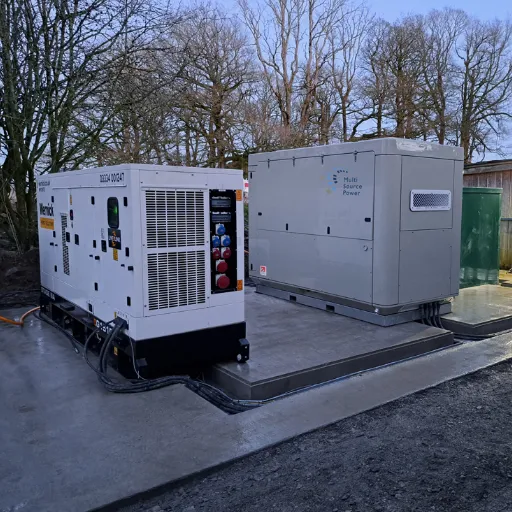
After reviewing the capabilities, budget allocations plans, and long-term aims of the hotel, consider some of the following:
Energy Needs
Find out and distinguish which systems you would consider critical during power interruptions. Full-service or larger hotels will require the use of standby generators, complete with automatic backups, whereas the smaller ones and makeshift facilities can utilize portable power plants.
Fuel Type
Availability and price of fuel need to be considered. Solar generation is green, but it requires a significant upfront investment. Dual-fuel or diesel generators are flexible and will keep you afloat in situations of peak demand.
Budget
Do a cost-benefit analysis between your initial expenditure and what you’d pay in terms of operational costs. Portable generators are initially less expensive but incur higher running costs, whereas standby generators require a higher upfront investment but are well worth it in the long term.
Sustainability Goals
Because the box checks the green statement, the solar or hybrid method adds to sustainability while limiting impact on Mother Earth.
To make an informed decision, you must understand the key features that define the available electrical power systems for your hotel, as well as the aspects of the hotel’s objectives.
Diesel vs. Natural Gas Generators
| Parameter | Diesel Generators | Natural Gas Generators |
|---|---|---|
| Fuel Availability | Widely available globally | Requires pipeline access |
| Initial Cost | Lower upfront cost | Higher initial investment |
| Operating Cost | Generally higher due to fuel prices | Lower operating costs |
| Maintenance Requirement | More maintenance-intensive | Lower maintenance needs |
| Efficiency | Higher efficiency in energy generation | Slightly lower efficiency |
| Environmental Impact | Emits higher greenhouse gases | Cleaner emissions |
| Noise Level | Typically louder | Quieter operation |
| Fuel Storage | Requires on-site fuel storage | No storage needed |
| Resilience to Power Outage | Operates well in extended outages | Relies on gas supply continuity |
| Lifespan | Longer lifespan with proper maintenance | Shorter lifespan comparatively |
| Suitability | Ideal for remote or industrial applications | Better for urban or residential settings |
| Power Output Consistency | Offers consistent and stable power supply | Power output depends on gas supply pressure |
Commercial Backup Generators: A Detailed Look
Power requirements of the business will be among the main determinants when choosing a backup generator. This means that you must consider the level of power that can be supplied by the generator, as it is directly related to certain imperative systems that operate in the event of a power shortage. Failure to do so can lead to underestimating the power required by all essential machinery and systems.
The kind of fuel on its own also plays a significant role, with options including Diesel, natural gas, and propane. Diesel generators, for example, are known for their efficiency in maintaining their performance throughout, owing to their design, especially for the harsh industrial environments and off-grid applications. On the other hand, units that run on natural gas are preferred in most cases I urban and residential areas wherte piping, hence gas is basically always there.
Also, consider the noise level, maintenance needs, and emission standards when making your choice. In high traffic areas, generators that emit less noise are more preferable, in the same way, it can be expected that organisations that are intend are eco-friendly will desire generators will come with their green energy requirements. By grasping all these factors, it will become easier to make sure the requirements of work and environmental concerns do not conflict, and the most suitable generator is selected.
Implementing Backup Power Solutions
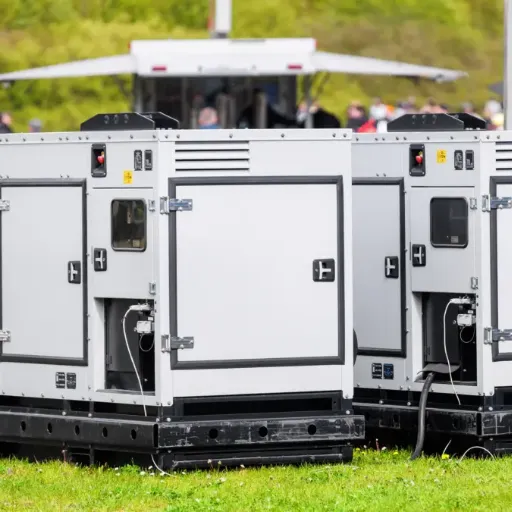
Utilizing backup power systems guarantees unwavering operational performance during unanticipated disasters. These backup systems provide the electricity necessary to carry out business-critical operations, avoiding crashes in computing systems, among other issues. In addition, for businesses, disruptions are costly; for homes, securing the power supply is only needed where it is to provide essential services like access to lighting and air conditioning. When choosing a backup power solution, it is of paramount importance to consider the energy output, maintenance costs, and other relevant factors in a particular market when drafting an RFP.
How to Prepare for Power Outages
Create an Emergency Kit
Assemble a comprehensive emergency supply kit, including essentials such as flashlights, extra batteries, clean drinking water, non-perishable food, a first aid kit, and a mobile phone charger. You can store these items in a power outage situation.
Invest in a Reliable Backup Power Source
A generator or an uninterrupted power supply (UPS) system can be put in place to prevent loss of the useful gadgets and house plants. Ensure that proper care and maintenance of the generator are assured, and when needed, it should be fully fueled or have a charged battery.
Safeguard Perishable Goods
An effective measure can be used to keep all perishable food so that the fridge door is always shut as much as possible. A full refrigerator can maintain the cold state of most things for up to four hours, while a freezer that is sealed can keep cool up to 48 hours.
Stay Informed
Keep watching the condition of the weather outside and weather alerts through news apps or community updates from a weather radio! Doing so will prepare you in advance for potential outages, minimizing their effects.
Protect Sensitive Electronics
Better go on providing that your gadgets and instruments are attached to surge protectors to spare them from any storm during power outages. It can be safely unplugged with any power or backup tools when in an outage.
Establish an Emergency Communication Plan
Be sure to share a plan to stay in touch with family or friends at work during an electricity outage. It is essential to create a list of key contacts, including emergency numbers, utility offices, and close relatives, either on a hard copy or saved on a device with a fully charged battery. A message consisting of contact statements should be provided.
Installation and Maintenance of Hotel Backup Generators
For hotels, it is essential to have a backup generator to ensure continued operational activity in the event of a power failure. Typically, installation involves a thorough assessment of the hotel’s energy specifications. This is used to determine the most appropriate generator size and its capability. There are additional steel items that should be included, such as the number of rooms, which systems are critical (e.g., elevators, aeration, lighting, etc). Professionals in the industry should strictly adhere to the installation process. It is also essential that the generator be properly positioned in a well-ventilated area that is freely accessible, without requiring the need to climb any structure, to avoid hazards and facilitate easy checking.
Adhering to the maintenance schedule is the most crucial step in preventing the deterioration of a hotel’s infrastructure, such as backup generators. This should involve changing oil and filters regularly, checking the quantity of fuel available, observing if the cooling mechanism is functioning correctly, and also the use of the generator when it is needed, so as to ascertain it can supply the power demanded by the hotel effectively, without dependence on the public electricity grid. Guided maintenance routines help prevent unexpected breakdowns, and this is where the use of qualified engineers comes in, so that maintenance is carried out on a timely basis. Moreover, new models of AC units are often equipped with monitoring systems that enable real-time tracking of program performance, allowing issues to be identified and corrective action taken promptly. Through this, good maintenance work is carried out and hotels can cater for the guests even when there are blackouts.
Case Studies and Best Practices
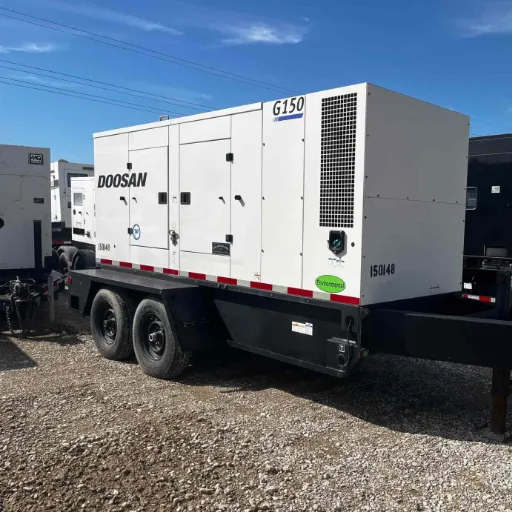
A top-notch seaside resort implemented a preventive maintenance strategy for its generators to curtail the many blackouts it was experiencing during adverse climatic conditions. Conducting site visits once a month, replacing the former generator with one of greater capacity, and utilizing remote monitoring methods resulted in only 15% losses over the two-year period. There was also the aspect where low-ranking maintenance was allocated to certain members of the resort’s staff, hence the normal service or in-service, meet and restaurant, does not become slow. As a result, customer satisfaction ratings increased drastically, demonstrating the beneficial effects of the program’s effectiveness.
Hotels should conduct monthly tests on the generator under various loading conditions to maintain the equipment’s health. The ability to identify forthcoming dangers and solve them on time and efficiently is very important in managing emergencies. Engage recognized industry experts for the complete maintenance and evaluation of the system generators. Installation or parts replacement advice that goes well with the hotel’s power specifications can be provided by the experts so that consistent barrier issues that arise during breakdowns will be resolved.
Successful Implementations of Generators in Hotels
One thing I know is that when it comes to unexpected power cuts, the hotel does not have to leave its guests sitting in the dark. Because even luxury hotels in places that are often hit by storms come with a reserve power supply in the form of a more sophisticated generator to keep the entire resort operational over an extended period. Thereby guaranteeing the kitchens, elevators, emergency lights, as well as the heating, cooling, and other guest services, do not exist.
In addition, many hotels in urban cities have chosen environmentally friendly electricity generation solutions, such as biogas or combined heat and power (CHP) systems, which focus on reducing gas emissions while promoting efficient use. Good practices indicate that such a backup generator approach enabled the hospitality establishments to face sudden power collapses and survive flash floods or blackouts affecting the whole city without inconveniencing any of the guests. A new paradigm may mitigate these risks by choosing more advanced generators, which would enable hotels to enhance their operational resiliency while meeting their commitment to high levels of environmental efficiency and guest service.
Innovative Solutions for Standby Power in Hotels
Lately, the trend is that more hotels have become more tech-savvy and need a Backup power supply that not only fits their daily operations but is also environmentally friendly. This is where things get interesting with the introduction of microgrid systems, which are composed of solar panels and batteries only, efficiently slicing and dicing the available resources. Not only do these systems help during the blackouts, but the solar panels also mitigate carbon emissions.
Additionally, another relief to power management is the use of smart energy management systems. These technologies utilize real-time monitoring and prediction services to optimize the behavior of the equipment, specifically the generators, thereby regulating fuel consumption and achieving lower operational costs. Also, with the advent of fuel cells as an alternative to diesel engines, there is a more attractive and quieter choice that can be adopted as a means of power supply for the premises. This also enhances the comfort of the guest and, in turn, demonstrates concern for the environment.
Moreover, with the help of various technological advancements in generator design, they can also be installed in hotel settings, scaling the power output as needed, for instance, depending on the number of occupants or special events. This way, when using electricity in the hotel room, it is never allowed to be intentionally wasted, as all energy reserves must be utilized fully. Such renewed strategies also go a long way in helping hotels achieve their objectives of being prepared for power cuts more sustainably and cost-effectively.
Future Trends in Hotel Power Generation
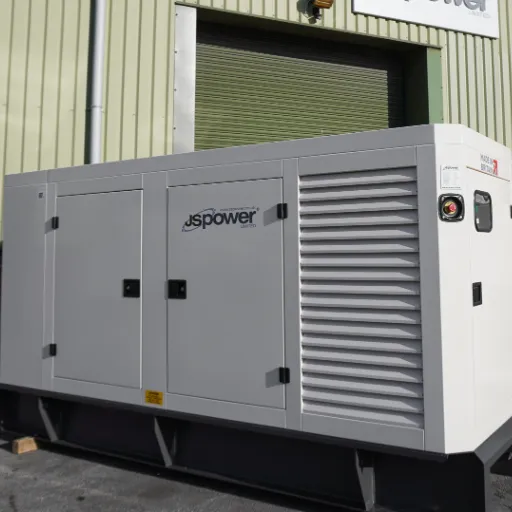
It is assumed that the future of energy production in hotels will be energy-saving, sustainable, and promote the use of smart technologies. There is an opinion that more and more renewable resources are being applied in the energy budget even today. For example, the energy from solar and wind power is taking an increasingly large share in substituting for conventional fuels in hotels and their heat and power systems. The integration of energy storage technologies and, in particular, the use of batteries and fuel cells can be helpful for hotels to take care of energy resources and ensure the presence of sufficient energy in case of emergency.
Apart from that, there are hotel management systems that control power consumption effectively, respond to changes in consumption and working conditions, and optimize processes to become more efficient while reducing the associated costs. Exploitations of microgrid systems are also escalating, offering new hope for turning hotels into power-producing structures and storing capabilities, which lessen disturbances due to breakdowns. In the forthcoming days, the changing environment will greatly aid the provision of energy to the hospitality sector with better power solutions that will also be cost-effective.
The Role of Technology in Generators for Hotels
The introduction of Smart Integration for Generators, such as IoT-enabled systems or advanced systems, has brought about significant improvements in energy supply in hotels. Such Smart Generators combined with Internet of Things (IoT) tend to facilitate a lot of remote activities, one of which doesn’t necessitate a visit to the physical generator location to troubleshoot and even check performance, wireless monitoring using the internet, and maintenance reminders, enabling hotel esteemed customers to resume or continue their activities under almost the same conducive environment they found them. Utilizing data with predictive techniques entails not only attempting to understand the dynamics of the equipment’s particular behavior, but also creating predictive maintenance tasks after monitoring conditions or recognizing deviations, as well as preventing any deviations from the specified performance or quantity in the normal cycle of operations. Therefore, one can justify that this particular application was implemented to achieve the highest possible reliability while minimizing the need for spare parts and standby periods. Additionally, there has also been a rapid growth in hybrid generators that run on both conventional fuel and renewable sources of energy.
Exploring Sustainable Power Options in the Hospitality Industry
The realm of services still strives to enhance its business capabilities and energy-efficient practices with the ongoing commitment to meet sustainable targets and changes in customer demands. One of the preferred areas for the application and operation of solar energy is in hotel buildings where the roof is fitted with photovoltaic elements for the generation of power, thereby minimizing the use of fossil energy sources. Wind is also a popular choice in areas such as the shore or vast expanses that are not covered by vegetation because once it is installed, a wind turbine is able to generate usable energy from an ambient breeze, which is a consistent source of air movement. Additionally, geothermal energy has found applications in the heating and cooling of institutions, particularly in areas with geothermal potential. Additionally, batteries are now considered a necessity, and with energy storage capacitors utilizing batteries, excessive renewable power can be saved and used later or in the event of a power outage. With these many different resources that come in the field of renewable energy choices, the hospitality industry is now helping a lot to reduce the excessive generation of gases that are causing the increasing temperature of the earth and the sustainability of the same.
The Future of Diesel and Natural Gas Generators
Diesel and natural gas engines, as well as certain other biofuel technology sources, have a long history of providing power backup services, particularly during emergencies or when electricity is unavailable. These services will not be migrated to the past in the future, but their application will be transformed into applications of more modern technologies. A major factor in the advancement of clean energy is the integration of cleaner fuels and hybrid systems. In other words, the use of new technologies enables the minimization of emissions by reducing their creation during traditional equipment operation, such as the use of advanced biofuels and renewable natural gas (RNG).
Moreover, the blend of using either diesel or natural gas generators together with renewable energy sources like solar or wind offers an advanced solution as an effective measure of increasing efficiency without its harmful component factor. The hybrid systems involved can thus allow the additional generators to step in and complement the intermittent clean energy during instances of minimal clean energy output. The addition of sophisticated control strategies and battery systems is crucial for further strengthening hybrid-based solutions by increasing in-system reliability while simultaneously decreasing fuel consumption.
The growth in global emissions control and standards is also driving advancements in emergency and backup power supply technology, resulting in new types of generators with lower emission characteristics. Moreover, with decarbonization being the main commercial and industrial strategy, the capacity of greener and more effective generators is projected to be imperative in the energy shift. Therefore, the popular belief that diesel and natural gas operated emergency and backup generators may not be fully eliminated is highly likely, those systems are however shifting towards more efficient and cleaner solutions that are compatible with environmental preservation.
Reference Sources
-
Evaluation of Medium Speed Diesel Generator Sets and Energy Storage Units
- Key Findings: This study evaluates different configurations of medium-speed and high-speed diesel generator sets, as well as energy storage units, for power generation. It highlights the efficiency and reliability of medium-speed diesel generators in hotel settings.
-
High Power Density Technologies for Large Generators
- Key Findings: The study introduces high thermal conducting (HTC) insulation technology, which enhances the thermal conductivity of generator insulation while maintaining electrical stress resistance. This innovation is particularly beneficial for large-scale power generation in hotels.
Frequently Asked Questions (FAQs)
Q: Can I use a used generator for my hotel?
A: Don’t be worried about installing an old generator at your hotel. Nonetheless, the question of the state and performance of the generator should be raised. It may be economical to purchase a used generator; however, it may require more frequent servicing to ensure it is working properly. It is always good to have professionals check if your hotel requires a generator and if its installation and running are necessary. Additionally, you may want to inspect the machine thoroughly, including its history, to ensure it meets all relevant standards and avoid potential problems later on.
Q: What is the importance of regular maintenance for hotel generators?
A: For hotels, it is important to keep the periodic inspections of the generators not only for convenience but for economy as well. The main reason is that these checks help identify any possible problems earlier, thereby preventing scenarios where the power goes off when it is needed. Maintaining activities also include checking electrical equipment, replacing filters, and conducting automatic changeover tests. Hotels can enhance client satisfaction by initiating suitable maintenance activities, thereby not only prolonging the useful life of the generating set but also providing exclusive power, making the customer’s experience all the more fulfilling.
Q: How do I choose the right generator for my hotel’s power needs?
A: Selecting the best generator for a hotel requires that you first estimate the power to be consumed. The elements to be put into account are various aspects, such as the amount of power in kilowatt (kW) that is needed for the operation of all the electrical materials, as well as the cumulative power consumption during the busiest hour of the day. Seek help from professionals who aim to support you in identifying the relevant constraints of your hotel and the ideal solutions for you. Another important factor regards your operations; diesel or natural gas, which type of generator is best for you to run to avoid inefficiencies and breakdowns.
Q: What are the benefits of a standby generator for hotels?
A: Hotels, like any establishment, benefit from the use of standby generators in the event of power outages or other unforeseen disasters. These generators have advantages over portable generators as they can automatically turn on when there is a power outage without the need for any person to control it. Such a capability is much needed in a hotel to ensure that critical services are maintained, such as power, heat, and temperature control. Last but not least, the importance of a standby generating system is to enable it to work effectively as in normal hotel operations so as to make the guests feel safe when they visit and thus enhance the hospitality experience of any hotel.



